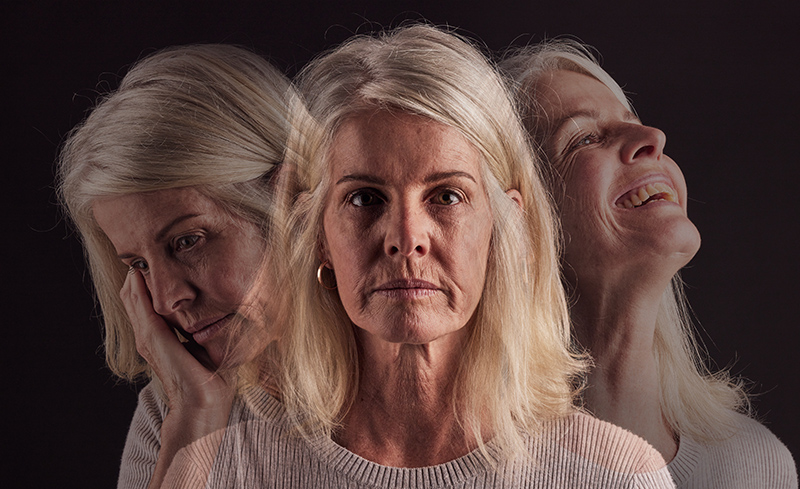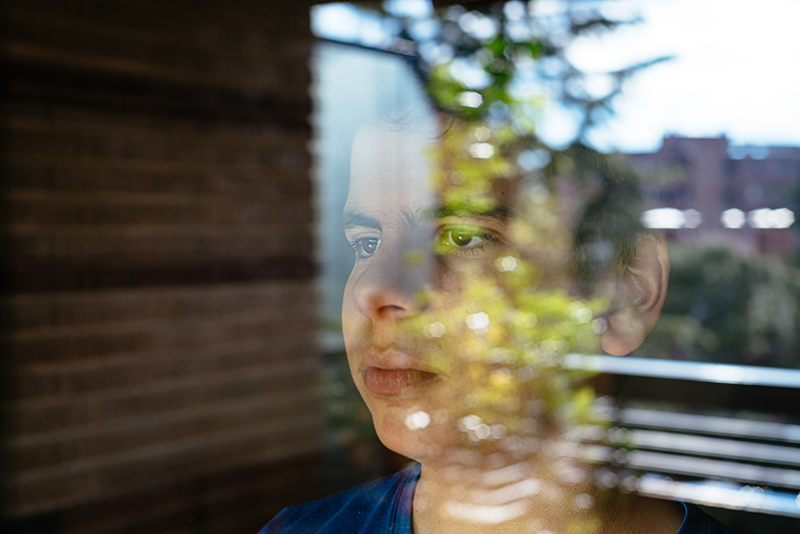Bio-degradable cards
Every card imaginable!
|
Bio-degradable cards Every card imaginable! Schizophrenia Explained: Symptoms, Diagnosis, and What It’s Like to Live With
DisclaimerThis guide is for informational purposes only and is not a substitute for professional medical advice, diagnosis, or treatment. Always consult a qualified healthcare provider, such as your GP or a mental health specialist, for any personal concerns or questions about schizophrenia. The information here is based on established medical knowledge as of December 2025. Table of ContentsWhat is Schizophrenia?If you're picking up this guide because you're worried about yourself or someone you care about, it's completely understandable to feel anxious or unsure where to start. Schizophrenia is a serious but treatable long-term mental health condition that changes how a person thinks, feels, and behaves. It affects around 1 in 100 people in the UK at some point in their lives, and it most often begins in the late teens or early twenties – a time when many young people are starting university, work, or living independently. Clearing Up Common MythsIt's helpful to address some widespread misunderstandings straight away, as these can add unnecessary fear:
What Does Schizophrenia Actually Involve?At its core, schizophrenia is a form of psychosis. This means that, during active periods, a person may have difficulty telling what's real from what's not. Experiences can include hearing voices that others can't hear, holding strong beliefs that seem unusual to those around them (sometimes called delusions), or struggling with motivation and emotions. These experiences vary greatly from one person to another. For some, symptoms come in clear episodes with long periods of feeling well in between. For others, they may be more ongoing but still manageable with the right support. It's not a constant state of severe distress – many people have times when symptoms are mild or under control. When Does It Usually Start?Symptoms often first appear during a major life transition, such as moving away from home or facing new stresses. You might notice a young person becoming more withdrawn, finding it hard to concentrate, or seeming confused about everyday things. Spotting these early changes and seeking help quickly can make a big difference. In the UK, NHS Early Intervention in Psychosis teams specialise in supporting people at this stage. They work with individuals and families to understand what's happening, reduce symptoms, and help get life back on track. Getting support early is linked to better long-term outcomes, including staying in education or work. Is Recovery Possible?Yes – many people with schizophrenia lead independent and fulfilling lives. Modern treatments, including medication, talking therapies, and practical support, have improved outcomes considerably compared to past decades. Recovery doesn't always mean being completely free of symptoms; for most, it means managing them well enough to pursue goals, maintain relationships, and enjoy daily activities. Schizophrenia can affect anyone, regardless of background, though it's slightly more common in certain groups and social factors like urban living or migration can play a role. The key message is one of hope: with timely help and ongoing support, people build resilience and achieve what matters to them. You're not alone in this, and effective help is available through the NHS and other services. 
Recognising the SymptomsIt’s completely understandable to feel worried or even a bit frightened when you notice changes in someone you care about – or in yourself. Schizophrenia symptoms can creep in gradually over months or years, or sometimes appear more suddenly, and they often feel confusing and overwhelming for the person experiencing them. Family or friends are usually the first to spot something isn’t quite right, perhaps noticing the person becoming quieter, more withdrawn, or unexpectedly irritable. The reassuring part is that recognising these changes early opens the door to quicker help, which is strongly linked to better long-term outcomes. Symptoms of schizophrenia are commonly grouped into three main categories: positive symptoms, negative symptoms, and cognitive symptoms. Below we’ll look at each one in more detail, so you can understand what might be happening and why it feels so disruptive. Positive Symptoms: Things That Are Added to ExperienceThese are experiences that “add” something extra to a person’s perception or thinking, rather than taking something away.
Negative Symptoms: Things That Are Lost or ReducedThese involve a reduction in normal emotions, motivation, or social engagement. They can be subtler than positive symptoms but often have a big impact on daily life and relationships.
Cognitive Symptoms: Challenges with Thinking SkillsThese affect memory, attention, planning, and problem-solving – skills most of us take for granted.
How Symptoms Change Over TimeFor many people, symptoms come and go in episodes. There may be periods of acute (very intense) symptoms, followed by calmer phases where things feel more manageable. Some people have ongoing symptoms that are milder but still present. The pattern is different for everyone, and with the right support, many people experience fewer and less severe episodes over time. What Should You Do If You’re Noticing These Signs?If you or someone you know is experiencing these kinds of changes, the most important step is to see a GP as soon as possible. They can listen without judgement, carry out an initial assessment, and refer you to specialist mental health services, such as an NHS Early Intervention in Psychosis team if appropriate. These teams are experienced in working with young people and families at the early stages, and they aim to provide compassionate, practical support to help reduce symptoms and protect things like education, work, and relationships. 
Causes and Risk FactorsNo one fully understands exactly what causes schizophrenia, but researchers agree it's never due to a single factor – and it's certainly not anyone's fault, such as poor parenting or personal weakness. Instead, it develops from a complex mix of genetic vulnerability, differences in brain function, and environmental influences that can interact over time. This combination helps explain why some people are more susceptible than others, and understanding these factors supports better prevention strategies and earlier intervention. Genetic FactorsGenetics play a significant role, though schizophrenia isn't passed down in a simple way like some conditions.
Brain Chemistry and StructureDifferences in the brain contribute to how symptoms emerge.
Environmental and Lifestyle FactorsCertain experiences or exposures can trigger schizophrenia in those already genetically susceptible, especially during sensitive periods like adolescence or young adulthood.
Social and Demographic FactorsBroader social influences show patterns in who is affected more often.
Not everyone exposed to these risks develops schizophrenia – far from it – and many people without obvious risks do. The factors often interact: for example, genetic vulnerability might make someone more sensitive to cannabis or stress. In the UK, NHS services, including Early Intervention in Psychosis teams, use this knowledge to monitor young people showing early signs, offer lifestyle advice (like avoiding drugs), and provide support to reduce triggers where possible. This approach focuses on building resilience and addressing modifiable risks. 
How Schizophrenia is DiagnosedGetting a diagnosis of schizophrenia can feel worrying at first, but many people find it brings a sense of clarity and marks the start of getting the right support. There's no straightforward blood test, brain scan, or lab result that can confirm schizophrenia on its own – the diagnosis comes from a thorough assessment by mental health specialists who take time to understand what's been happening. Starting with Your GPIf you're concerned about changes in yourself or someone close to you, the first step in the UK is usually to see your GP. They will ask about the experiences you've noticed, how long they've been going on, and how they're affecting daily life, such as work, studies, or relationships. The GP will also check for other possible explanations, like physical health conditions, medication side effects, or substance use.
The Specialist AssessmentA psychiatrist or a specialist team (often including psychologists and nurses) will carry out a detailed assessment. This usually involves one or more conversations where they explore:
They may also arrange basic physical checks, like blood tests, to rule out other causes (for example, thyroid problems or vitamin deficiencies that can mimic psychotic symptoms). What the Diagnosis is Based OnIn the UK, clinicians follow guidelines from the International Classification of Diseases (ICD-11, used by the NHS) or sometimes the DSM-5 criteria, which are broadly similar. A diagnosis of schizophrenia typically requires:
The process isn't rushed – specialists want to be sure, as symptoms can overlap with other conditions like schizoaffective disorder or brief psychotic episodes. What Happens After AssessmentIf schizophrenia is diagnosed, the team will explain it clearly, discuss what it means, and outline support options right away. Many people feel relieved once things have a name, as it helps make sense of confusing experiences and opens access to tailored treatments. In rare cases where someone is very unwell and at risk, a short hospital stay might be needed for safety and closer observation, but most assessments and initial support happen in the community. Why Early Diagnosis MattersSpotting schizophrenia early and getting specialist input quickly is linked to better long-term results, including fewer relapses and stronger recovery. NHS Early Intervention teams focus on this, working flexibly with individuals and families to protect education, jobs, and relationships where possible. If symptoms have been present but you're unsure, contacting your GP is always worthwhile – they can guide you through the next steps without pressure. 
Treatment and ManagementTreatment for schizophrenia aims to reduce symptoms, lower the chances of relapses, and help people maintain a good quality of life. With the right approach, many individuals see substantial improvements and manage the condition effectively. In the UK, the NHS provides comprehensive, personalised care, usually delivered through community mental health teams rather than long hospital stays. Starting treatment early, ideally through Early Intervention in Psychosis services, tends to lead to stronger outcomes. Most people receive support at home, with regular contact from professionals. Treatment plans are built around the person's needs and preferences, and they are reviewed regularly to ensure they remain suitable. Antipsychotic MedicationMedication forms the main part of treatment for most people, as it helps rebalance brain chemicals and is particularly effective at reducing positive symptoms such as hallucinations and delusions.
Medication is usually continued long-term to prevent relapses, but doses can often be lowered over time under close supervision. Stopping suddenly without medical guidance can increase the risk of symptoms returning strongly. Talking Therapies and Psychological SupportTherapies play an important role alongside medication, helping people understand and cope with their experiences.
Practical and Social SupportDay-to-day help is often crucial for maintaining independence.
Managing Acute EpisodesWhen symptoms become more intense, additional help is available quickly.
Treatment is not one-size-fits-all – what works best evolves over time as circumstances change. Regular reviews with the care team ensure adjustments are made, and many people find their need for intensive support decreases over the years. With consistent care, relapses become less frequent and severe for most individuals. 
Living with SchizophreniaLiving with schizophrenia brings real challenges, but plenty of people find effective ways to handle them, keep pursuing their goals, and maintain close relationships. It's all about discovering what suits you personally, and having reliable support can truly make things easier. The idea of recovery varies from person to person – for some, it involves having few or no symptoms, while for others, it's about building a meaningful life even when symptoms are present. In the UK, services like community mental health teams and recovery-focused programmes help tailor this journey, drawing on personal strengths and preferences. What Recovery Can Look LikeRecovery isn't a fixed endpoint but a process where people regain control over their lives. Many achieve stability through a combination of treatments, lifestyle adjustments, and social connections, allowing them to live independently or with minimal support. Research shows that with consistent care, around two-thirds of people experience significant improvement over time, including reduced hospital admissions and better overall well-being. This might mean returning to hobbies, volunteering, or simply enjoying everyday activities without constant disruption. Building a Daily RoutineEstablishing steady routines often helps in staying well and managing symptoms day to day.
Returning to Work or EducationMany people with schizophrenia successfully go back to work or studies, often with some adjustments.
Maintaining RelationshipsRelationships might feel strained at times, but honest conversations and mutual understanding can strengthen them.
Dealing with Challenges Like StigmaStigma remains a hurdle, sometimes leading to withdrawal or reluctance to seek help, but awareness efforts are changing this.
Looking After Physical HealthThe condition and its treatments can impact physical well-being, so regular monitoring is essential.
Navigating Good Days and Bad DaysDaily experiences can fluctuate, but people develop ways to handle both.
The Role of Peer SupportConnecting with others who've lived through similar experiences offers unique understanding and encouragement.

Help and Further ResourcesReaching out for help when dealing with schizophrenia – whether for yourself or someone you care about – can feel like a big step, but there are plenty of reliable organisations and services across the UK ready to provide information, practical advice, and a sense of community. Many offer helplines, online resources, local support groups, and specialist guidance tailored to different needs. Key National Charities and OrganisationsThese groups focus on mental health in general or psychosis specifically, with dedicated sections or services for schizophrenia.
NHS and Specialist ServicesThe NHS is the main provider of treatment and ongoing support in the UK.
Other Useful Resources
Medical ID CardsMany people find that carrying a medical ID card helps ensure the right information reaches professionals quickly in an emergency, especially if communication is difficult. Here at The Card Project UK we offer a range of personalised, photo ID cards designed specifically for conditions like schizophrenia. These resources are there to help at any stage – from understanding a new diagnosis to managing long-term. Contact details and services can change, so it's worth checking them directly for the latest information. 
FAQ SectionHere are answers to some of the most common questions about schizophrenia. These are based on current understanding and NHS guidelines, but everyone's experience is different – if something here resonates, talking to a professional can provide personalised advice. What causes schizophrenia?Schizophrenia develops from a combination of factors rather than one single cause. Genetic vulnerability plays a part – having a close family member with the condition increases the risk, though most relatives never develop it. Differences in brain chemistry, particularly involving dopamine and glutamate, contribute to how symptoms appear. Environmental triggers, such as major stress, trauma, pregnancy complications, or heavy cannabis use during teenage years, can bring it on in those already susceptible. It's important to remember that it's never due to bad parenting, personal weakness, or anything the person has done wrong. Research is ongoing, and while we don't have all the answers, knowing these factors helps with early identification and support. Is schizophrenia curable?There isn't a complete cure in the sense of eliminating it forever, but schizophrenia is highly treatable, and many people achieve strong recovery. With the right medication, therapy, and support, symptoms can be greatly reduced, go into remission for long periods, or become much more manageable. Episodes often become less frequent and severe over time, allowing a good quality of life. Early treatment makes a particular difference, and ongoing advances continue to improve outcomes for more people. Can people with schizophrenia work or study?Yes, many people with schizophrenia successfully hold jobs or continue with education. Support such as medication to manage symptoms, talking therapies, flexible working arrangements, or phased returns can make it achievable. In the UK, schemes like Individual Placement and Support help match people to suitable roles, and the Equality Act requires reasonable adjustments from employers or colleges. Employment rates have been improving steadily, with many working part-time or full-time in a wide range of fields. Does schizophrenia mean someone is dangerous?No – people with schizophrenia are no more likely to be violent than the general population, and they are far more often victims of violence themselves. The idea that the condition makes someone dangerous is a harmful myth, often fuelled by misleading media portrayals. Most individuals live calm, non-violent lives and pose no threat to others. Any risk of aggression is usually linked to untreated symptoms or substance use, and proper treatment greatly reduces even that small possibility. How common is schizophrenia?In the UK, around 1 in 100 people will experience schizophrenia at some point in their lives. It typically starts in late teenage years or early adulthood, though it can appear later. The condition affects people from all backgrounds in similar ways biologically, but certain social factors – such as urban living, migration, or disadvantage – can influence rates in some groups. Overall, it's neither extremely rare nor overly common, and services are structured to provide help when needed. Can substance use cause schizophrenia?Substance use alone doesn't cause schizophrenia, but heavy use of certain drugs, especially cannabis during adolescence, can significantly increase the risk for those already genetically vulnerable. High-potency cannabis (like skunk) has the strongest link, with studies showing heavier teenage users may face several times the usual odds. Other drugs like amphetamines or cocaine can trigger psychotic episodes too. For anyone with schizophrenia or at risk, avoiding recreational drugs is strongly recommended as part of staying well. What if someone doesn't think they're ill?Lack of insight – not recognising that experiences are part of an illness – is very common, especially early on. It can make engaging with treatment tricky at first. Mental health professionals use patient, non-confrontational approaches, building trust over time and focusing on practical difficulties (like sleep problems or anxiety) rather than immediately challenging beliefs. Family involvement, motivational interviewing, and gradual education often help, and insight frequently improves with treatment and recovery. Is hospital treatment always needed?No – the majority of care for schizophrenia happens in the community, with support from GPs, community mental health teams, or home treatment services. Hospital admission is usually short-term and only when necessary for safety during a severe crisis, such as intense symptoms that can't be managed at home. The goal is always to stabilise quickly and return to community care as soon as possible. How can family help?Families often provide invaluable day-to-day support, and there are practical ways to make that easier. Learning about schizophrenia through reliable sources helps everyone understand what's happening. Open, calm communication, encouraging adherence to treatment, and watching gently for early signs of relapse all make a difference. Family therapy, offered by many NHS teams, can improve relationships and coping. Carers should also look after themselves – support groups, respite care, and advice from organisations like Rethink Mental Illness are available. Does schizophrenia get worse with age?Not necessarily – for many people, the condition stabilises or even improves over time, especially with consistent treatment. Acute episodes often become less frequent and intense after the early years. Early intervention and ongoing support are linked to better long-term outcomes, including fewer relapses and greater independence. While some face ongoing challenges, many find their symptoms ease and their ability to manage daily life strengthens as they get older. 
ConclusionSchizophrenia is a complex mental health condition, but with the right understanding and support, many people manage it well and lead fulfilling lives. The main points to take away are the value of spotting symptoms early (which often leads to better results), the benefits of combining medication with talking therapies, and the ongoing help available through NHS community teams and other services. Research indicates that a good number of people reach remission or strong recovery, especially when support starts promptly, even though everyone's journey is different. This guide provides general information based on established knowledge and is not a substitute for professional medical advice. For anything personal, always speak to your GP or mental health team – they can offer guidance tailored to the specific situation. It's positive to see treatments continuing to advance and public awareness helping to reduce stigma. Many people draw strength from connecting with others who have similar experiences. Staying informed through reliable sources, looking after well-being (whether your own or a loved one's), and seeking expert input remain the best ways forward. This information is accurate as of December 2025. Medical understanding develops over time, so please check with a healthcare professional for the most current advice.
© 2024 The Card Project Uk Ltd
VAT: 453 2087 06
|